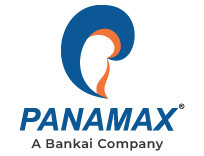From bustling metropolises to remote villages, the widespread adoption of mobile wallets offers a powerful tool to empower previously unbanked populations and cultivate a more robust financial ecosystem.
With a projected 60% of the global population using digital wallets by 2026, mobile payment solutions are poised to become the dominant form of financial transactions. This surge is particularly significant for emerging markets.
Mobile payments offer a chance to leapfrog outdated systems, bringing financial inclusion and economic growth to even the most remote areas. However, robust security measures are essential for this digital revolution to thrive. This blog explores how strong security paves the way for successful mobile payments.
Why are Mobile Payments Booming in Emerging Markets?
Emerging markets present a breeding ground for mobile payment solutions. Here's why:
High Mobile Penetration
The number of people owning smartphones is soaring in developing countries, surpassing computer ownership. This provides a ready platform for digital payment solutions, dropping the need for costly hardware investments.
Limited Access to Traditional Banks
A substantial number of the population is unbanked or underbanked in emerging markets. This means mobile payment solutions can give them an easy and accessible alternative to traditional banking systems, encouraging financial inclusion.
Cash-based Culture
With cash preferred over online payment solutions, economies incur high costs on printing, transporting, and securing physical currency, thus saving money, and enhancing efficiency. Additionally, mobile payment solutions help individuals track their spending with records easily accessible on their phones.
Such factors have already spurred the increase of mobile payment solutions like UPI in India and M-Pesa in Kenya. They not only make individual lives easy and convenient, but they also drive financial inclusion at a larger scale.
Security Concerns: A Hurdle to Widespread Adoption
The potential rewards of mobile payments are undeniable, but they come hand-in-hand with security risks that cannot be overshadowed. Here’s a look at some security risks that you must know about.
Digital Literacy Gap
Many users in emerging economies lack experience in digital financial services. So, this can make them prone to malware or phishing attacks. When users lack digital literacy, cybercriminals can deploy malware that can steal financial data easily. Phishing attacks, texts, or emails that look legitimate can trick users into sharing their login details and compromise their security.
Uncertain Regulatory Environment
Inconsistently enforced data protection laws and cybersecurity frameworks create uncertainty for users and service providers. Users stumble to embrace mobile payment solutions if they don't believe their financial information is adequately protected.
Data Privacy Concerns
Mobile wallets and payment solutions have stored confidential data such as user credit card details and transaction history. Users have limited transparency regarding how this data is stored, creating distrust. They may worry about their information being passed on to third parties.
Business Concerns
It’s common for companies to be apprehensive about integrating mobile payment solutions into preexisting accounting and financial systems. They fear the integration because of security risks or compatibility issues, delaying merchant adoption or limiting user options.
Weak Cybersecurity Infrastructure
Unlike developed countries, emerging markets do not have robust cybersecurity infrastructure, making them susceptible to mobile payment system-related cyberattacks.
Building a Secure Fortress – Why Robust Security Measures are a Must?
For combatting security threats and developing trust in mobile payments, building solid security measures is more essential now than ever. Here’s what should be done to ensure enhanced security for mobile payments in emerging markets.
Multi-factor Authentication
An extra layer of security always goes a long way. Multi-factor authentication lessens the risk of unauthorized access if a hacker steals a user’s login credentials. Because it requires users to go through multiple verification steps, such as passwords and one-time codes sent to their phones to fulfill a transaction.
Scalable Solutions
With the growth of mobile payment adoption, the probability of security breaches also grows. Embracing scalable security solutions that handle rising transaction volumes and onboard new users without letting off protection. This ensures sustainable growth and lesser risk exposure.
User Education
Users must be educated on best practices for mobile security. There should be campaigns that teach users how to identify phishing attempts, why strong passwords are essential, and steps to take if they suspect the device is compromised.
Stakeholder Collaboration
Ensuring security in mobile payments is definitely a collaborative effort. Governmental institutions must establish clear and strong data protection regulations. Mobile payment providers and financial institutions need to invest in progressive security technologies and user education initiatives. Open communication and collaboration between these stakeholders are a must to build a secure ecosystem.
Strong Encryption
It’s apparent that data security is crucial. Mobile payment solutions must encrypt all user data at rest and in transit. This ensures that individuals can't access sensitive data even if they succeed in breaching a system.
With these measures taken care of, mobile payment solution providers can nurture a secure and reliable environment.
How Enhanced Security Drives Mobile Payment in Emerging Markets?
The advantages of reliable security when doing the mobile payment operation as a standalone thing also expand beyond just the individual operation. Let's explore the broader positive impact.
Promotes Financial Inclusion
A secure environment creates more space for people who quickly adapt to formal financial systems, opening doors to other services like loans and savings. Enhanced financial inclusion means the economy grows faster because individuals and businesses manage their finance portfolios efficiently.
Complies with Regulatory Standards
Emerging markets quite often struggle to adhere to regulations in the digital financial space. Secure mobile payment solutions easily help in obeying international security standards and local regulations, thus helping gain user trust and remain compliant.
Leverages Security as a Competitive Differentiator
In a growing mobile payment market, robust security features can be the key selling point, so by highlighting advanced protocols and protection measures, solution providers can get an edge over their competitors.
Enables New Revenue Streams
Enhanced mobile payment security can help to generate new revenue streams. To explain, a secure mobile wallet can be utilized to store loyalty programs, tickets, and other digital assets – creating partnership opportunities and offering additional services.
Facilitates Smooth Transition to Digital Banking
With users becoming handier with secure mobile payments, it becomes likelier for them to explore other digital financial services such as online banking and investments. This paves the way for higher inclusion and development.
Ultimately, a secure mobile payment structure acts as a backbone that leads to the development and participation of others in a world of inclusiveness, efficiency, and dynamism in developing economies.
The Path Forward
Undoubtedly, the security of mobile payments in the future in emerging markets will be maintained only through innovation in life. The emergent ones, like fingerprints, offer possible means of new technologies. New technologies such as biometrics are coming up to enhance the scope of creativity. Fingerprint or face recognition can provide a more protected and enhanced way to identify users for processing transactions.
The emergence of these technologies allows to add an extra layer of security that was unthinkable in the past, but one should still not forget that the battle for security never ends. Banks, FIs, and cybersecurity experts must have ongoing talks to recognize new and existing vulnerabilities.
To sum up, strong security is one of the prerequisite components for the continuity of mobile payments in third-world economies. Through honest best practices, encouraging collaboration, and embracing nascent innovation, we can, therefore, unleash the full potential of this transformational technology, providing a platform for mankind's progress.
Panamax offers you a secured, all-inclusive mobile payment solution – connect with us to know more.


















